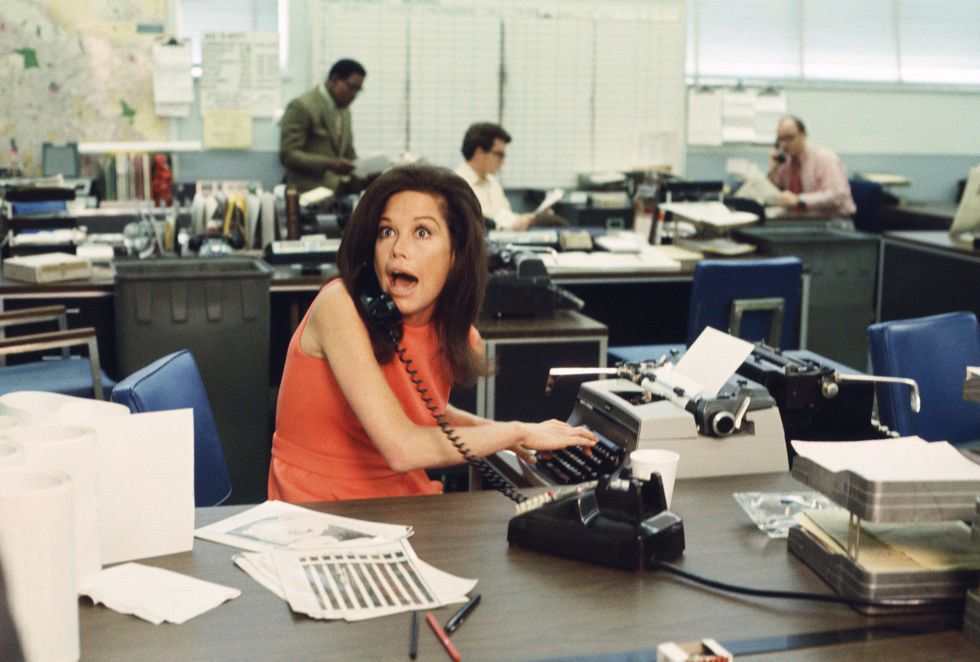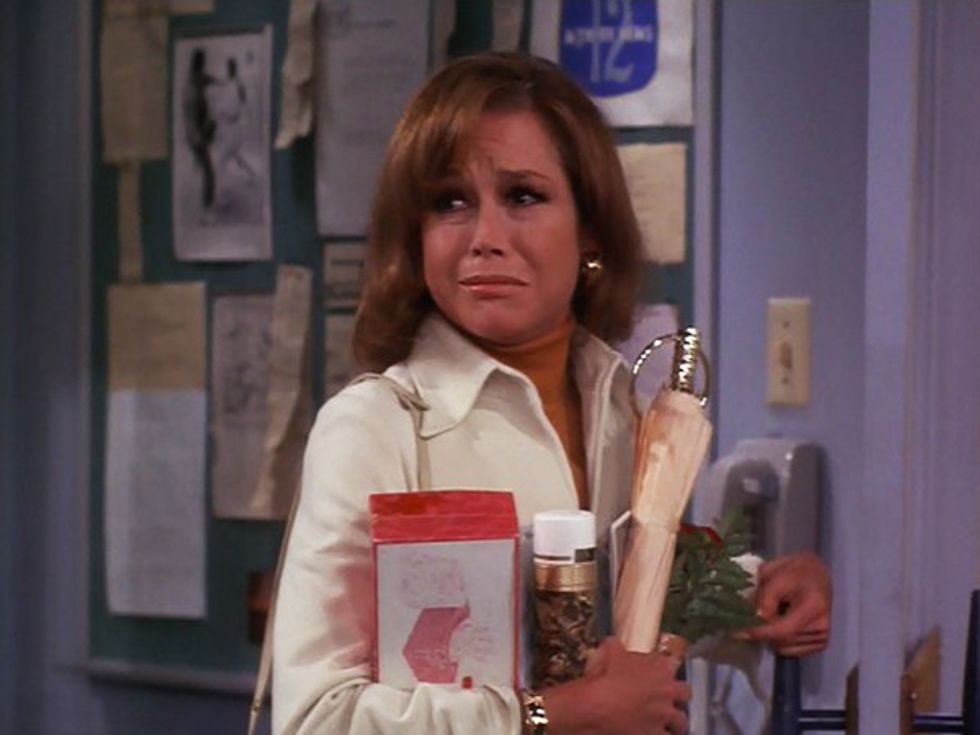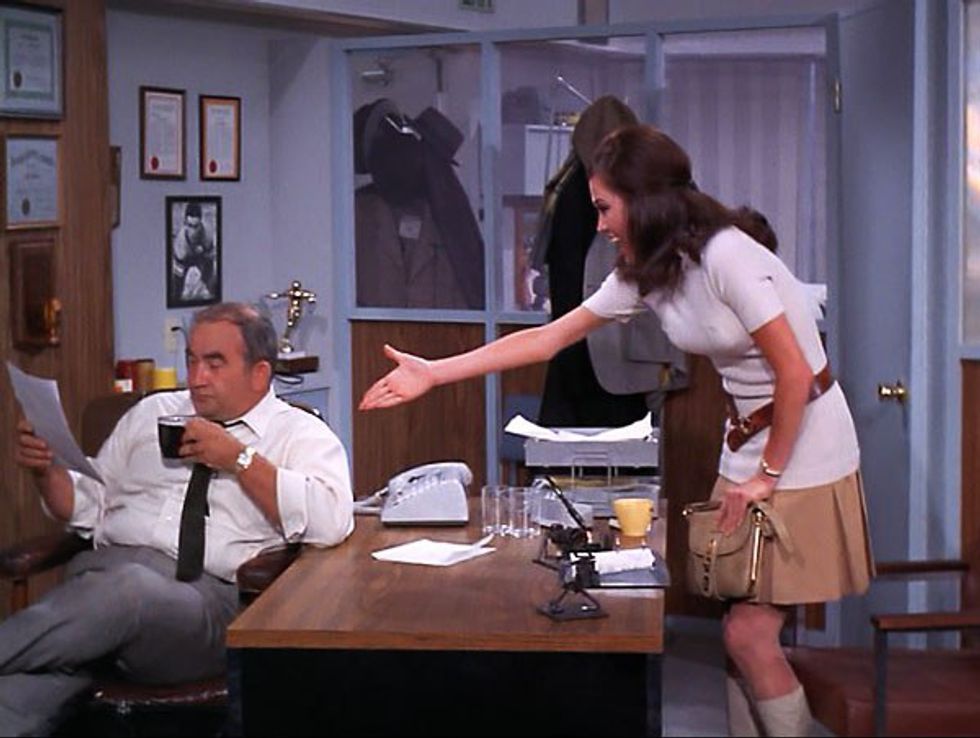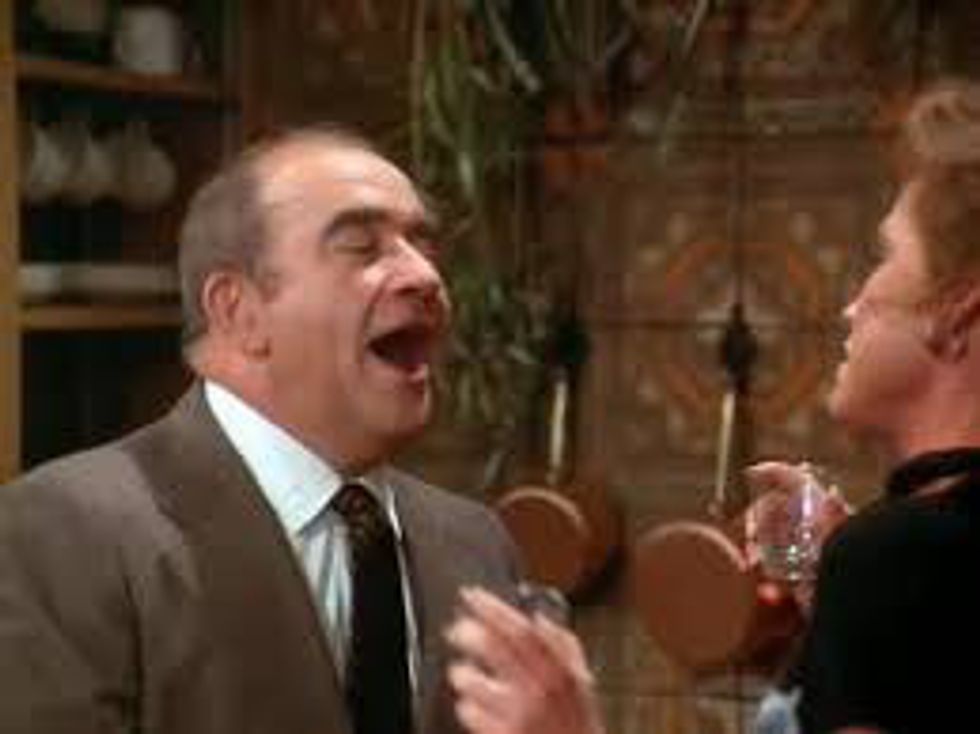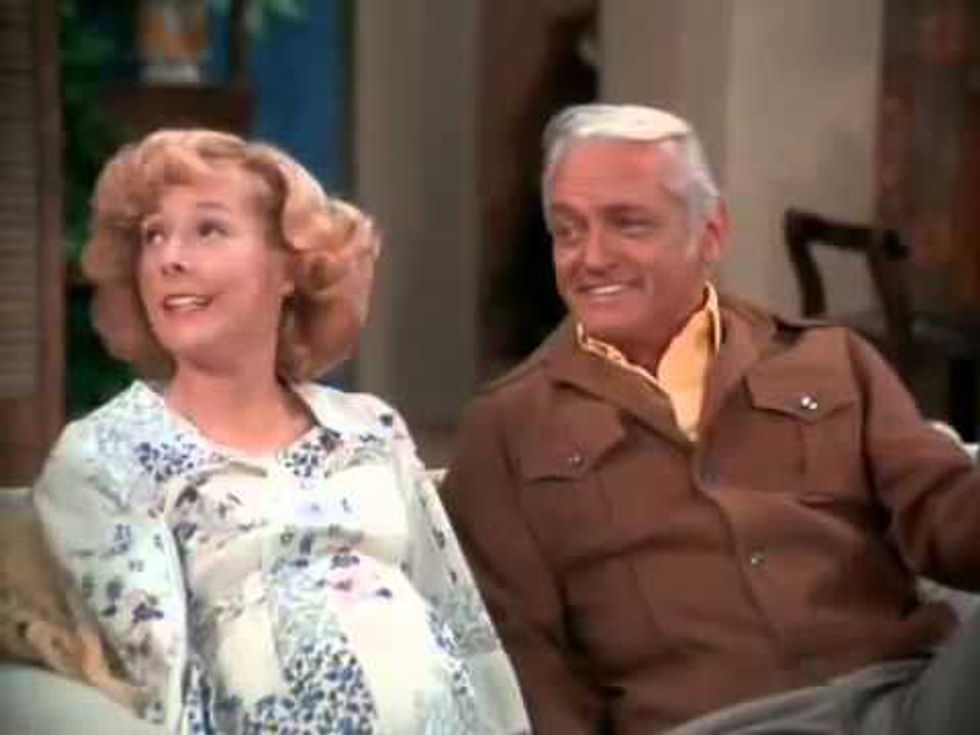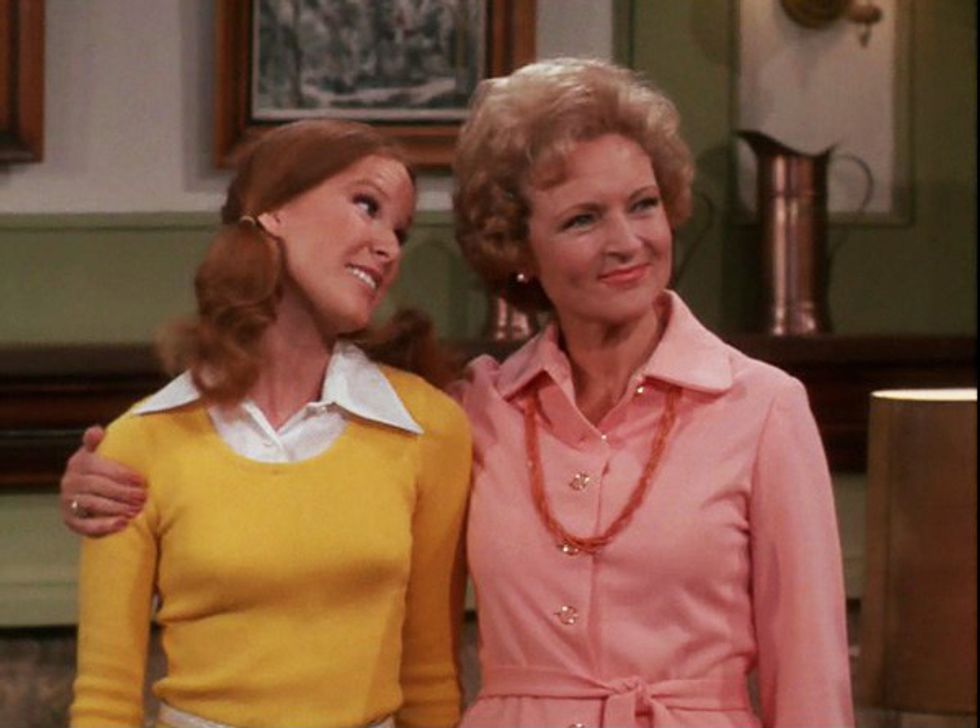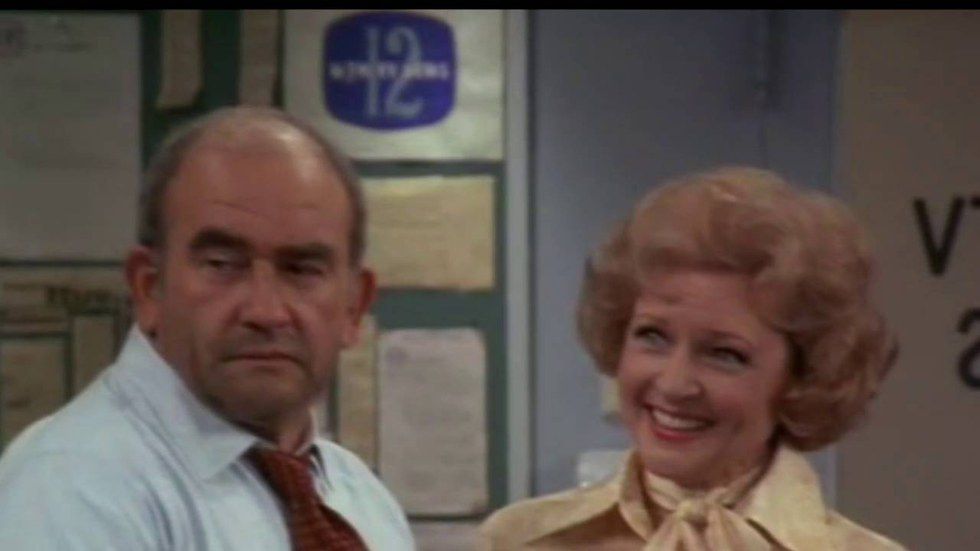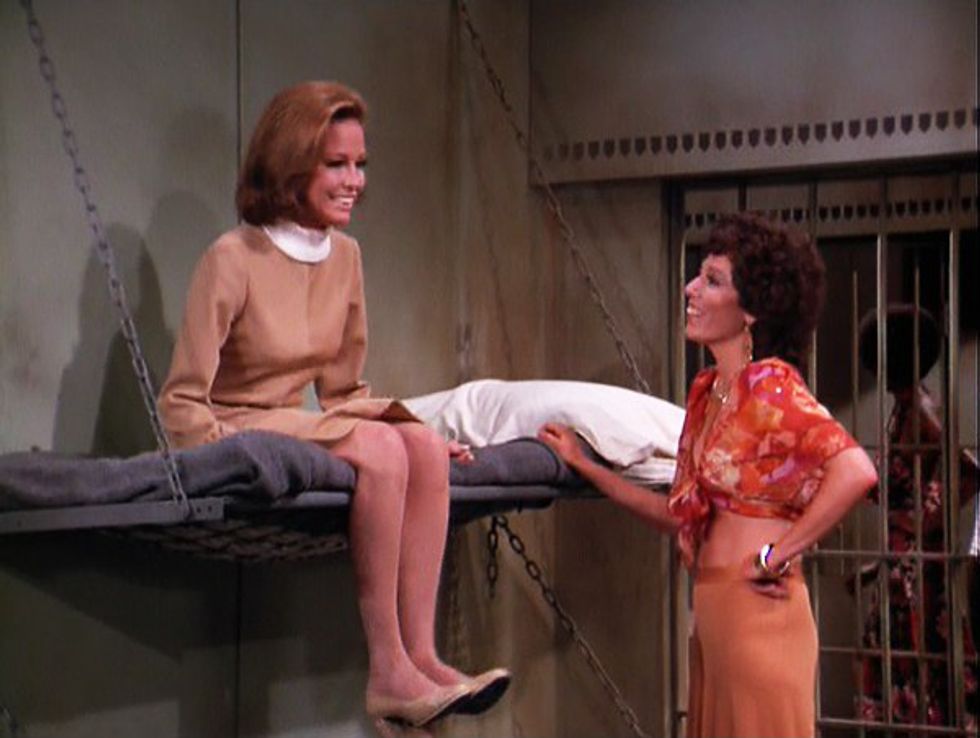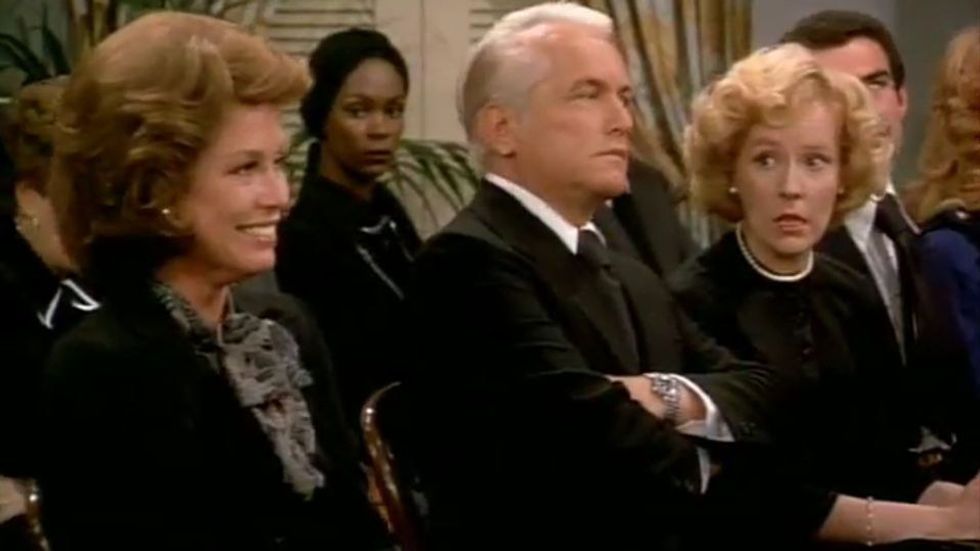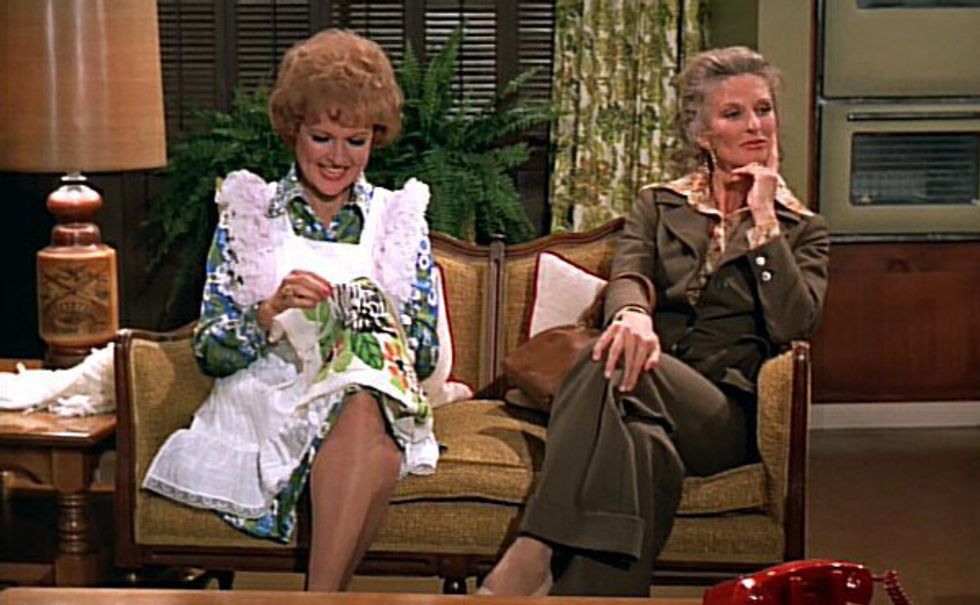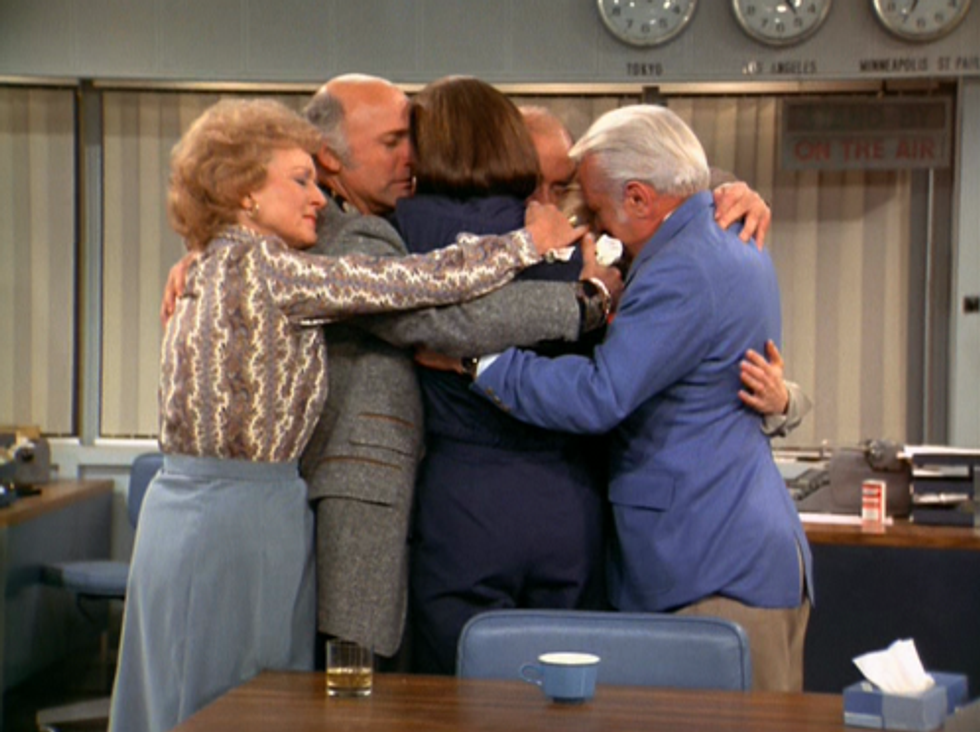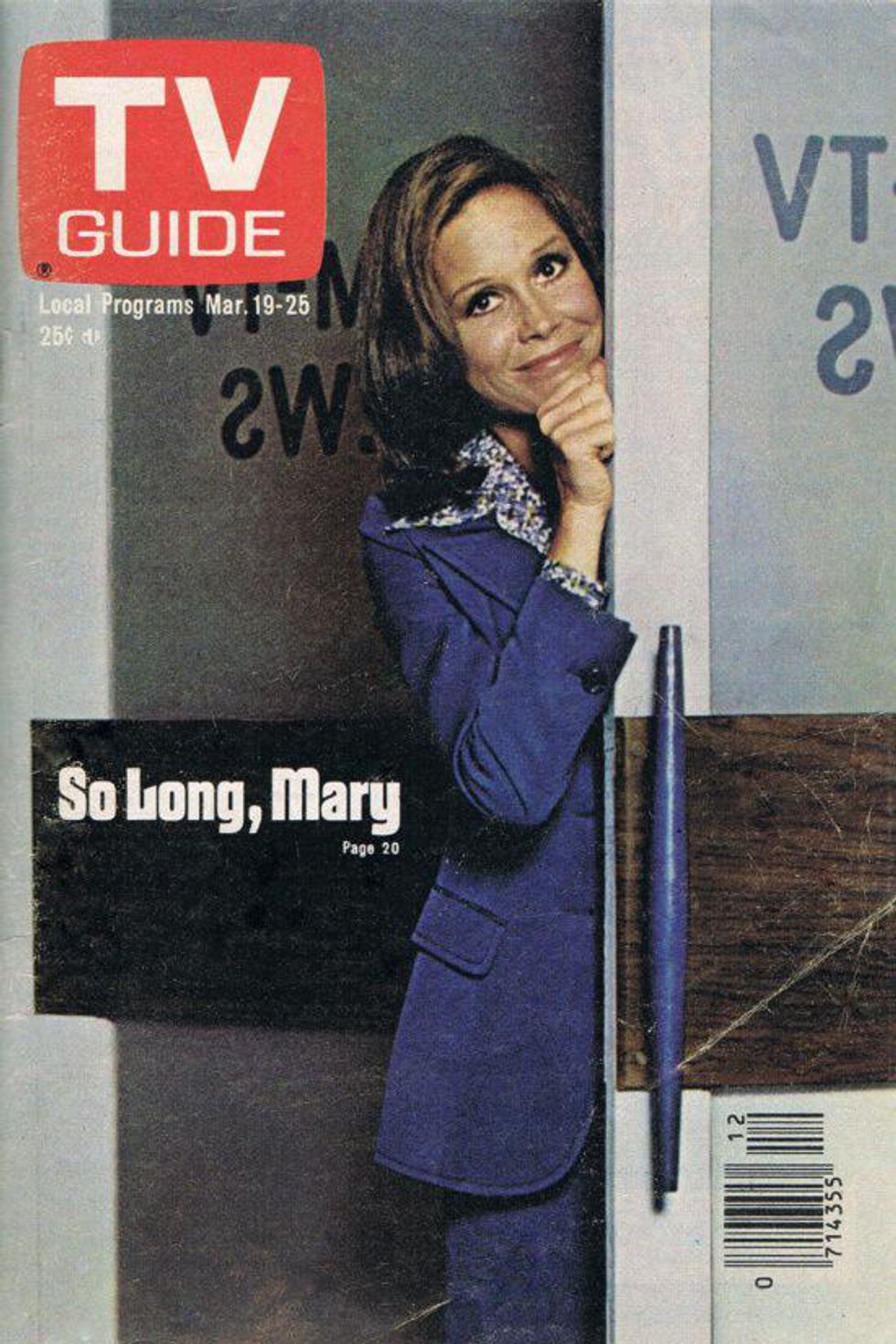By this point, in the days following her death, it would be redundant to describe and detail the cultural significance of Mary Tyler Moore and her self-titled sitcom which aired on CBS from 1970 to 1977. The show, the first to focus on a single, contented, woman with a career who was undefined by her relationships with men, was revolutionary and highly popular for its time and permanently altered the American cultural landscape.
More incredible than its status as a landmark is the fact that the show has stood up well over time. It won't induce the same kind of laughter that some topical shows of quality might, but even today the 47-year-old sitcom makes "Two Broke Girls" look like ... well, "Two Broke Girls." The warm, witty scripts, the subdued genius of the plots, and the fantastic ensemble cast including Betty White, Valerie Harper, Gavin MacLeod, Cloris Leachman, and Ed Asner all worked to make the show an instant classic. And while every episode is exemplary, these ten demonstrate "The Mary Tyler Moore Show" at its absolute best and represent (at the risk of editorializing) perfect TV.
10. Better Late ... That's a Pun ... Than Never (Season 4, Episode 20)
When Rhoda (Mary's neighbor/best friend who would soon after get her own spinoff and garner over 52 million viewers for her hourlong wedding episode - over half of America's viewing population) comes over to help Mary write obituaries for the news station, sleep deprivation leads them to start writing gag obits. When one is read on the air, it leads to Mary getting fired from the station (in true sitcom form she gets rehired before the end of the half hour). This episode focuses on the relationship between Lou Grant and Mary Richards as boss/employee and as good friends, and the acting by both Moore and Ed Asner is so phenomenal you can see the real-life love and admiration they had for each other.
9. Love Is All Around (Season 1, Episode 1)
The very first episode of the series only has a kind of brazen confidence to it because of hindsight. Nobody was sure if it would last, especially because it wasn't well-received by test audiences (they just didn't understand why she was single and not at least trying to find a husband). Despite its shaky beginnings, this episode establishes the characters in a smart, funny, endearing way. The blueprints for these characters would not fundamentally change over time, they would only grow, becoming more complex and refined. This episode also has one of the greatest and most notorious exchanges in the history of the masterfully written show when Lou Grant concedes to job applicant Mary Richards that she has "spunk." When she demurely nods in agreement, he barks back "I hate spunk!" Three little lines of dialogue, one enduring moment of TV history.
8. Lou Date Mary (Season 7, Episode 23)
Over the course of a decade, Mary Richards and her boss Lou Grant developed a tight-knit relationship that is now de rigueur for office-based sitcoms. Because this was the 1970s, and Mary Richards was an attractive, intelligent, successful woman in her mid-30s, she was still expected to settle down eventually. Being independent for the first few seasons was considered acceptable if not iffy by the home viewers but by season 7 it was almost shocking. So, in an effort to placate the viewers and drive home the point that Mary might not ever get married or have children and that's fine, they gave us this episode. In it, Lou and Mary finally go on a date. All it takes is one incredibly awkward kiss to show to themselves and to all of us why they never got together; because their friendship was good enough. Better, even.
7. Mary Midwife (Season 7, Episode 1)
"The Mary Tyler Moore Show," like any comedy show of merit, refused to sacrifice a character for the sake of one joke, and this practice made every moment of the show feel authentic and organic. In this episode, inept news anchor Ted Baxter's sweet, dim wife Georgette goes into labor - ruining yet another party at Mary's apartment (a running gag throughout the series) - giving the audience a look at how each character responds to childbirth and how beautifully these oddball coworkers have formed a family. The episode's highlight: a nervous Mary backing away and saying "a delivery room is no place for a woman!"
6. A New Sue Ann (Season 5, Episode 7)
5. Once I Had a Secret Love (Season 6, Episode 18)
The show is notable for its blending humor and heart with an unheard of deftness, but this episode takes that heart to new extremes by putting strain on the friendship between Mary and her curmudgeonly boss Lou Grant. After Mary learns of and mistakenly blabs about Lou's one night stand with Sue Ann Nivens, Lou sits her down in his office to tell her: "You violated my confidence. It was important to me. I'm your boss, it doesn't interfere with that. We're just not friends anymore." This poignant moment is immediately followed by Mary's hilariously feeble attempts to hold back sobs, and while everything works out in the end (Mary's sweetness corrodes Lou's bitterness before the credits roll), their relationship being put in jeopardy in this episode makes the viewer realize how special and meaningful it is.
4. Will Mary Richards Go to Jail? (Season 5, Episode 1)
"The Mary Tyler Moore Show" marked an abrupt shift in the American sitcom. While the 1960s were all about housewives, rural communities, witches, genies, outer space, and talking horses, the 1970s dealt with gritty reality. In this episode, Mary's refusal to name an informant lands her in jail, and while the sociopolitical implications of Watergate take the spotlight, it is Mary's outstanding journalistic integrity that anchors the episode and gives it its warmth and iconography. For all of her wide-eyed charm, Mary Richards, like Moore herself, was an iron-willed warrior, and this episode, better than any other, proves that.
3. Chuckles Bites the Dust (Season 6, Episode 7)
This list would have absolutely no credibility if I left out this episode because it is often considered one of, if not the best episode of the series, as well as one of the greatest sitcom episodes of all time (and at this point it's almost a cliché to name it but here we are so just shut up and keep reading). When WJM kiddie show host Chuckles the Clown is killed in a freak elephant accident, Mary's coworkers make a series of tasteless jokes which Mary admonishes them for. By the time of the funeral, Mary is in fits of uncontrollable laughter. When the preacher reminds the crowd that Chuckles would have wanted laughter, he encourages Mary to express her joy, at which point she breaks down in tears. The show's ability to make something as somber as death so funny earned the episode an Emmy, but it's Moore's performance that makes this episode unforgettable. Her emotions at the funeral transition so seamlessly that this episode transcends a mere sitcom and becomes - God I hope this doesn't sound hackneyed - art. This episode is a prime example of Moore's first rate comedic capabilities.
2. The Lars Affair (Season 4, Episode 1)
The season four opener found Mary Richard's landlady, the pretentious and petty Phyllis Lindstrom (played expertly by Cloris Leachman) confronted with a newer, nastier villain; Sue Ann "The Happy Homemaker" Nivens, played with malicious perfection by Betty White. Nivens, a self-centered, sociopathic, man hungry Martha Stewart-from-Hell, signals the start of the show's truly genius years (but was there ever even one bad episode in the series?) but it's Leachman's characterization of a woman dealing with an adulterous husband that rightfully earned her an Emmy. Not only had this topic rarely been broached on primetime television, but never before or since has it been done with such sincerity and such comic genius (see the way Leachman deliberately slams the oven door on White's soufflé).
1. The Last Show (Season 7, Episode 24)
The series finale of any show carries an almost unreasonable responsibility; it leaves the final impression on the viewing audience and can make or break the legacy of the show. "The Mary Tyler Moore Show's" final episode is, four decades after its airing, considered one of the greatest series finales of all time, and understandably so. After the entire staff of WJM (the show's fictional news network) is unceremoniously fired, they go through the episode trying to cope together as the odd family they had become over the course of seven seasons (three in Betty White's case). The episode culminates in an iconic group hug comprised of five coworkers/friends/family members too emotional to let go. It embodies all of the warmth and humor that the show perfectly blended and is flawless from start to finish, an emotional powerhouse as emotionally resonant as it was forty years ago.
In light of our modern social climate, Moore's status as a mainstream feminist icon makes her passing seem a kind of tragic coincidence. But no matter which side of the political spectrum you sit on, Moore's talent, her cultural impact, and the importance of her legacy are irrefutable.
1936 - 2017




